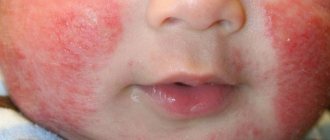Sun rays are a familiar environmental factor for humans, the beneficial effects of which are well known, but there are also negative consequences of indulging in solar treatments, and one of them is an allergy to the sun. It can appear immediately (within 2-30 seconds) or several hours after direct exposure of the skin to radiation. There are often cases when symptoms appear later - after 2-3 days. The rate of development of an allergic reaction is determined by the degree of resistance of the body to the effects of natural light, as well as the intensity of the radiation.
Next, we will look at how sun allergy manifests itself, what are the causes and symptoms in adults, and what to do for effective treatment.
Can a person be allergic to the sun?
Sun allergy is not quite correctly called a reaction that occurs in certain people under the influence of sunlight. The correct name for it is photodermatosis, or solar dermatitis.
Modern medicine classifies all manifestations of increased sensitivity of the body to sunlight as such a disease. But recent studies have shown that these problems are not associated with a person’s exposure to the scorching rays of the sun. This is just one of the factors that provokes such a specific allergy. Most often, this problem is associated with malfunctions of internal organs.











